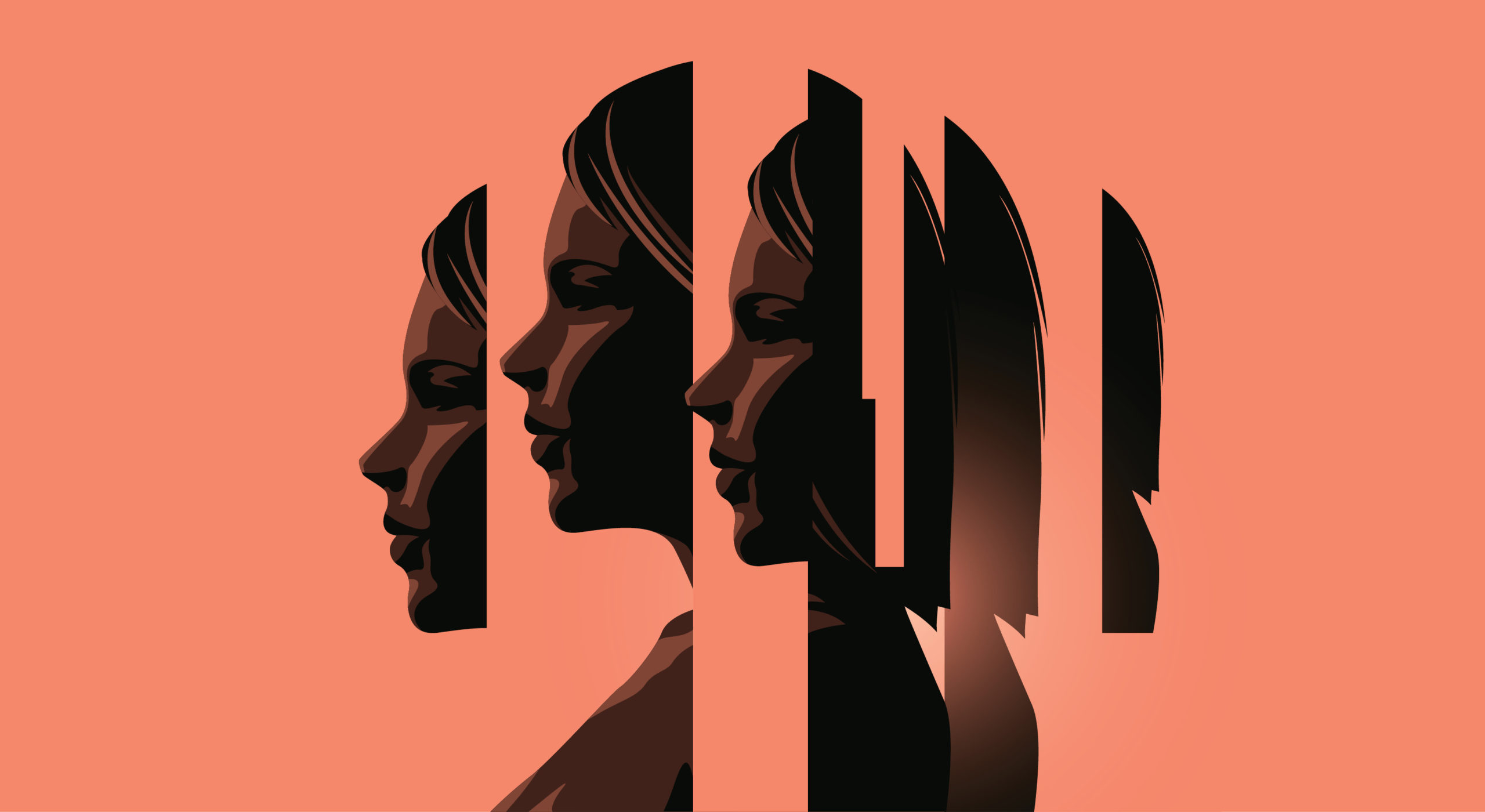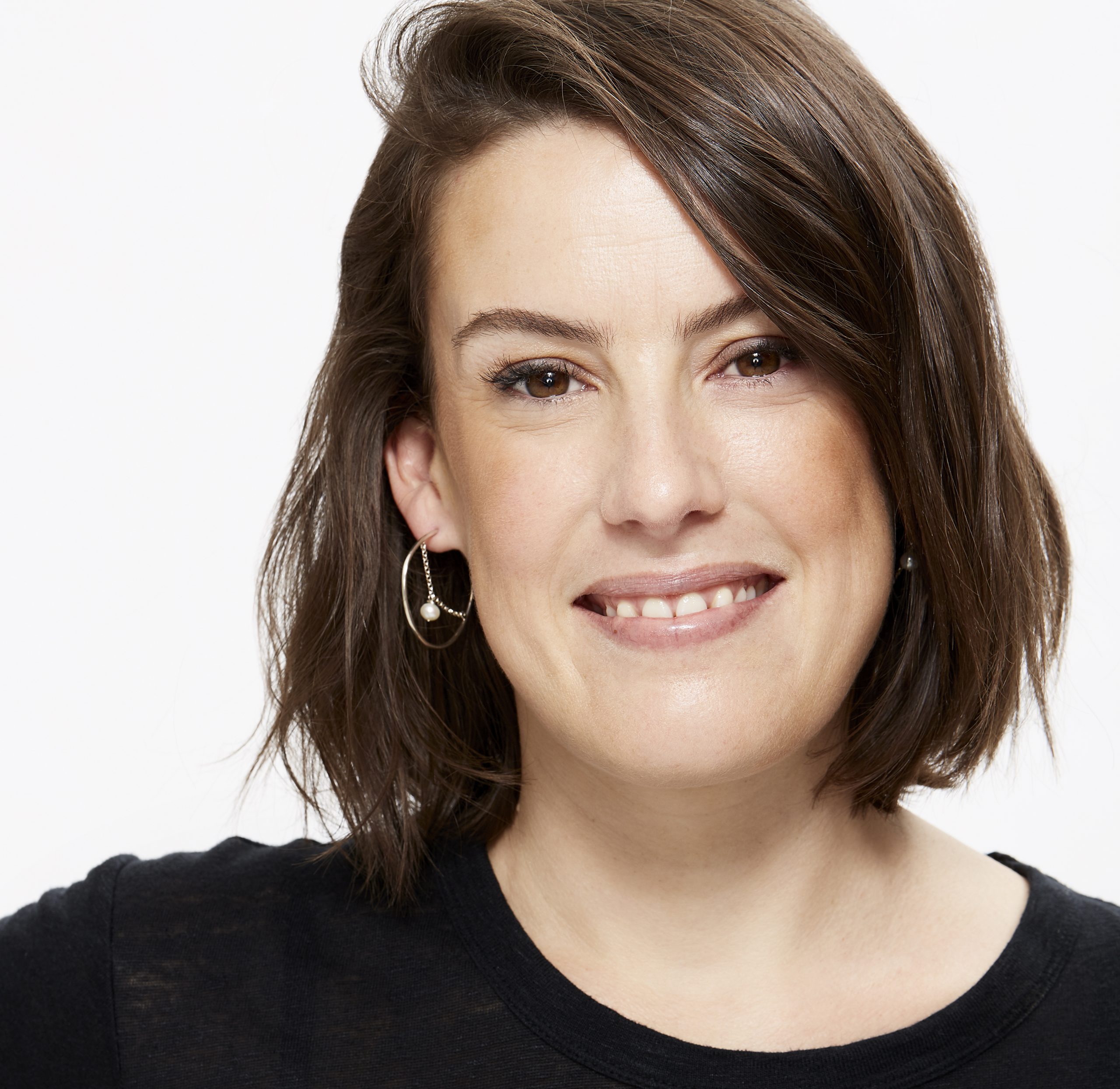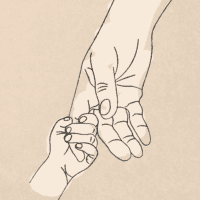Anxiety was a worldwide epidemic long before any of us heard the words “coronavirus” or “PPE”. But since the pandemic began, hotlines around the world have been lighting up as people report feelings of anxiety or depression.
(In Australia, calls to mental health charity Beyond Blue have spiked by 30 per cent in the past two weeks.)
It’s hardly surprising. After all we’re all experiencing uncertainty, isolation and fear. But although the conditions may be – in many ways – universal, the ways in which anxiety manifests is surprisingly varied.
For some women anxiety means a shortness of breath and a racing heart; for others it’s overwhelming tiredness or irritability; for still others it can be nausea or “brain fog”.
This week we spoke to five women about what anxiety feels like to them – as well as how they’re coping in social isolation and how they manage their symptoms.
“There’s a weight on my chest, and I can’t make even the smallest decision”
Camilla Martin is a management consultant and speaker for Beyond Blue
My history: I was anxious growing up. Most teenagers get stressed over exams, but I would get stressed off the scale. Then in my early thirties, both my parents died and I remember consciously taking the opportunity to use the bereavement window to admit I wasn’t coping and had never really coped.
What it feels like: Lying down, it can feel like a couple of bags of sugar are on my chest. My breathing is shallow, and my brain is very foggy. I can’t concentrate or read or focus. I can’t make decisions very easily – I can’t even decide what to pick out from the fridge. I almost need someone to sit me down, hold my hand and tell me what to do.
How I manage it: You know what’s interesting? I’m doing really well, right now. It’s almost as though all my therapy and training is coming into its own. In terms of general management, I try to allow the tension out by crying – really deep guttural sobbing. Sleep is also essential for me. I am very strict about getting eight hours sleep, and if I wake in the night I’ve learned to meditate myself back to sleep. But the most effective thing is intercepting the negative self-talk. It will come of its own volition, and I [tell myself] ‘I can see you and I don’t have time for you’.
“I feel on edge, uneasy, for no reason”
Georgie Dent is a journalist, mother and the author of Breaking Badly, a memoir about anxiety
My history: From a young age I’ve been a natural worrier, and that worsened as I got to high school and then uni. But it really ratcheted up when I started my first full-time job and that was when I was formally diagnosed with anxiety. Until then, I didn’t know what it was – I just genuinely thought everybody spent their days worried about everything all the time.
How it feels: For me, a racing heart is common and having this real sense of concern. I might just find myself feeling really uneasy and I don’t know why. It’s a feeling of being on edge with no explainable trigger. I would say that I’m a fairly high-functioning anxious person and quite good at compartmentalising so I can still get things done.
How I manage it: I have been on medication for 13 years. It made a huge difference when I first started taking it. I have also used therapy for quite intensive periods of time. When I start to feel as though I’m experiencing anxiety more often than not, it’s usually time for me to go and see someone.
My anxiety has been worse since coronavirus. I have Crohhn’s Disease and I’m on an immunosuppressant, so I’m potentially more susceptible to the virus. Also, my husband works in hospitals, so he is more at risk. I’m a news junkie, too, which feeds into the anxiety. I think that as someone who’s already predisposed to anxiety this scenario was never going to be a good time for me.
One thing that really helps is exercise. I’ve also really tried to lean into spending more time with the kids and taking joy in the little things like bush walks and cooking. Retreating into our world and just accepting the current situation has been quite helpful.
“I had my first panic attack in three years because of Coronavirus”
Sarah Bryan is a body image coach and also works in retail
My history: I’ve always been incredibly anxious, but as a child it was brushed off as being quiet or shy. It wasn’t until my late twenties that I was diagnosed with generalised anxiety disorder. I was also struggling with an eating disorder and depression as well. These days, I am recovered from the eating disorder but anxiety and depression will always be things that pop up in my life.
What it feels like: For me, anxiety means a lot of over-thinking, as though my brain is going a million miles an hour. I also have physical symptoms like breathlessness, headaches and diarrhoea and constipation.
Those symptoms have been a lot more common since the pandemic began. I’m a body image coach but also had two casual retail jobs – which I’ve now lost. The lack of financial security has made me really stressed and a bit hopeless. I had a panic attack this morning for the first time in three years. I couldn’t breathe properly, it felt as though my chest was constricted and I felt nauseous.
How I manage it: I am on medication and see a psychologist regularly. During coronavirus I’ve also been limiting social media, as I’m the type of person who wants all the information. I also like ‘brain dumping’ where I write out my feelings. I’ve also taken up reading and I go on walks once a day. I practise self-compassion, too, and remind myself that it’s ok to feel anxious and that we’re all dealing with this strange and unusual world.
“When I feel anxious, I feel nauseous”
Katrina Jackson, 31, suffered perinatal anxiety. She is a mother of two and studying counselling.
My history: I had perinatal anxiety and depression with my second child. I had vomiting and nausea for the entirety of both pregnancies, so I was really looking forward to the end of the pregnancy because the vomiting would end.
But after I have birth to my son, the vomiting stopped for a week and then it came back. I lost 10 kilograms and we just couldn’t figure out why I was feeling the way I was. I had an endoscopy and there was no ceoliac and no signs of cancer.
After around five months, I was also starting to experience tingling lips and fingers and my doctor said, why don’t we give anti-anxiety medication a go – and it was a life-changer.
What it feels like: If I have too much on my plate or I’m feeling overwhelmed I’ll start to feel nauseous again. I also still get tingling in my fingers or in my lips. Also, if I get gastro or food poisoning that’s a trigger for me because it feels as though it’s back. I start thinking: ‘Is this anxiety? Or is this gastro? Is this going to go on for five months?”
How I manage it: I combine medication with psychology. I’m much more honest about my journey, which I think helps. I was hospitalised for four weeks last year after I had a bit of a meltdown and after that I stopped drinking. I was never a big drinker but I found that even after having a few drinks I would feel horrendous in my head, mentally, for about a week afterwards. So I quit, which can be difficult as people then constantly ask why I’m not drinking and you feel like you have to get into the story behind it. Exercise definitely helps me feel better, and compassionate therapy, too, as I can be quite hard on myself and I need to change the self-talk in my head.
Covid-19 has been difficult because I’d just started a Bachelor of Counselling at the beginning of the year and I was out talking to people and finally doing something for me. Now we’ve moved to online learning, the isolation is quite hard, so I’m trying to use Zoom meet-ups with other mature-age uni students, just to have that connection to people.
Katrina has also launched an Instagram page called @where_is_the_village to reduce the stigma around mental illness
“I feel irritable and tired”
Kelly Clark, 28, a social consultant and SANE peer advisor
My history: “I didn’t grow up in a safe household so I was anxious around home-related stuff all the time. I’m also a perfectionist, and I feel like I need to be able to control my environment – because if something’s not perfect it feels bad. A few years ago I was diagnosed with Borderline Personality Disorder (which I no longer meet the criteria for). My perfectionism is related to my Obsessive Compulsive Personalty Disorder.
What anxiety feels like: I feel it in my body. It’s a tightness around my jaw and in my chest. When it’s really bad it feels exactly like the symptoms of a heart attack: I become aware of my heart beating, it can become difficult to breathe and I lose my peripheral vision. Anxiety also causes overwhelming tiredness and exhaustion – almost as though my body is saying ‘I can’t do anything about this. We’re going to nap’. I also get angry and irritable really easily over little things.
I’ve noticed online a lot of people saying they feel either super-productive or not productive at all right now [during the pandemic], and that’s what it’s like to have anxiety. In some ways I feel as though I’m coping better than other people because I have years of practising skills to cope with anxiety.
How I manage it: I keep a routine. It doesn’t have to be complex – but I get up before 9am every day and get dressed within an hour. I’ve been in and out of therapy since I was about 10. I’ve found a couple of types of therapy helpful – cognitive behavioural therapy, dialectal behavioural therapy and schema therapy. I’m also on medication.
Do you need help with anxiety or mental health or know someone who does? Please consider these resources below, and if it’s an emergency, please call 000.
Call 1300 22 4636 or visit the dedicated help section for dealing with anxiety that has arisen since coronavirus.
SANE Australia
Help Centre counsellors are available from 10am-10pm (AEDT), Monday to Friday on 1800 187 263
SANE Online Forums (saneforums.org) are completely free and anonymous, and are moderated by mental health professionals 24/7 to ensure users feel safe and are supported. Users can stay connected to others on two Forums–one for people experiencing mental health issues, and one for carers, family or friends.
Need help with pre or post-natal anxiety or depression? Contact PANDA on 1300 726 306










No Comments